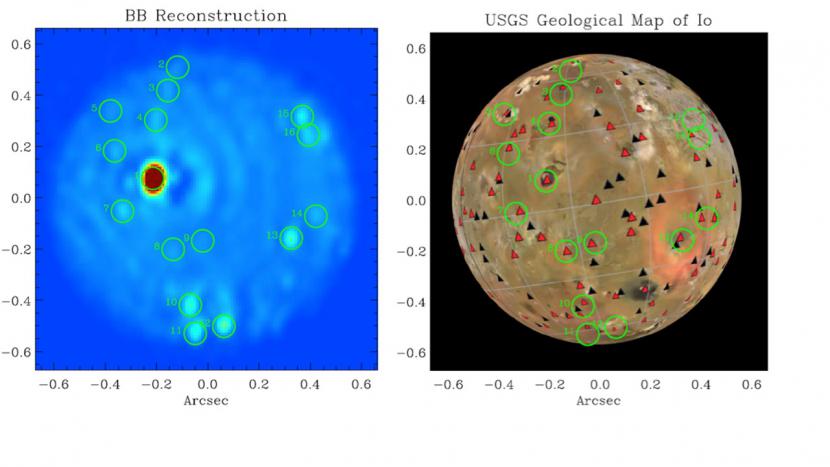-
Selections Made for the JWST Director’s Discretionary Early Release Science Program
November 13, 2017
Following the recommendation of the Time Allocation Committee and a thorough technical review, the Space Telescope Science Institute (STScI) Director Ken Sembach has selected 13 science programs for the JWST Director’s Discretionary Early Release Science Program (DD-ERS).
Tags:More -
New Storm Makes Surprise Appearance on Neptune
August 2, 2017
Extremely large, bright storm system caught on camera at W. M. Keck Observatory Maunakea, Hawaii – Striking images of a storm system nearly the size of Earth have astronomers doing a double-take after pinpointing its location near Neptune’s equator, a region where no bright cloud has ever been seen before.
Tags:More -
Recent Faculty Discoveries Include Learning What’s Under Jupiter’s Clouds and the Most Precise Measurement of Universal Expansion to Date
June 6, 2016
Professors Imke de Pater and Alex Filippenko have each released information pertaining to findings regarding their respective research last Friday.
More -
Campbell-LeConte Bridge Officially Completed
May 15, 2015
After months of waiting, the Campbell-LeConte bridge was finally cleared for use last week, marking the achievement of another major milestone towards the completion of the Campbell Hall building renovation. The bridge, which connects Campbell Hall (home of the Astronomy department) and LeConte Hall (home to the Physics Department), aims to help foster a stronger, collaborative relationship between members of each department by allowing for easier movement between buildings. The moment was celebrated with a short ceremony; Astronomy chair Imke de Pater and Physics chair Steve Boggs, in their respective buildings, gave short speeches and performed ribbon cuttings before participating in a shared ribbon cutting at the center of…
More -
Giant Telescope Takes a Close Look at a Lava Lake on Jupiter’s Moon Io
May 1, 2015
Scientists recently confirmed information regarding Loki Patera, a volcanic depression on Io (the innermost of Jupiter's four moons) that, up until recently, scientists were unable to closely examine. Using the combined Large Binocular Telescope (LBT) and Large Binocular Telescope Interferometer (LBTI), in addition to the LMIRcam, the camera recording images in the LBTI, scientists found evidence that suggests Loki Patera's bright emissions are actually an active overturning lava lake, a finding that points to confirmations of past hypotheses. From the press release provided by Large Binocular Telescope Observatory: "While we have seen bright emissions – always one unresolved spot – “pop-up” at different locations in Loki Patera over the…
More -
Prof. de Pater discusses planetary images obtained with adaptive optics
November 1, 2009
After a duration of 10 years, the NSF Science and Technology Center for Adaptive Optics (CfAO), held its last official retreat at the UCLA Conference Center at Lake Arrowhead on 5-8 Nov. 2009. UC Berkeley Professor Imke de Pater gave a plenary talk on "10 years of planetary science" within the CfAO. She started by showing some of the earliest images, still plagued by artefacts (e.g., on Uranus), followed by more recent results obtained after the AO system had been optimized. A variety of objects within our Solar System are shown on the introductory slide: Jupiter, Neptune, Uranus, Titan, Io…
Tags:More -
AAS Honors Two UCB Astronomy Faculty
March 1, 2008
The American Astronomical Society has honored two Astronomy Department faculty with awards for 2008. Professor Eliot Quataert was awarded the Society's 2008 Helen B. Warner Prize "for his contributions to plasma astrophysics and accretion processes, the theory of low luminosity galactic nuclei, and an extraordinary range of other topics in theoretical astrophysics." Professor Imke de Pater shares the 2008 Chambliss Writing Award with Jack Lissauer of NASA/Ames for their book entitled Planetary Astrophysics. The book surveys the entire field of planetary astronomy and "has rapidly become the standard text for teachers of planetary sciences." Congratulations!
Tags:More






